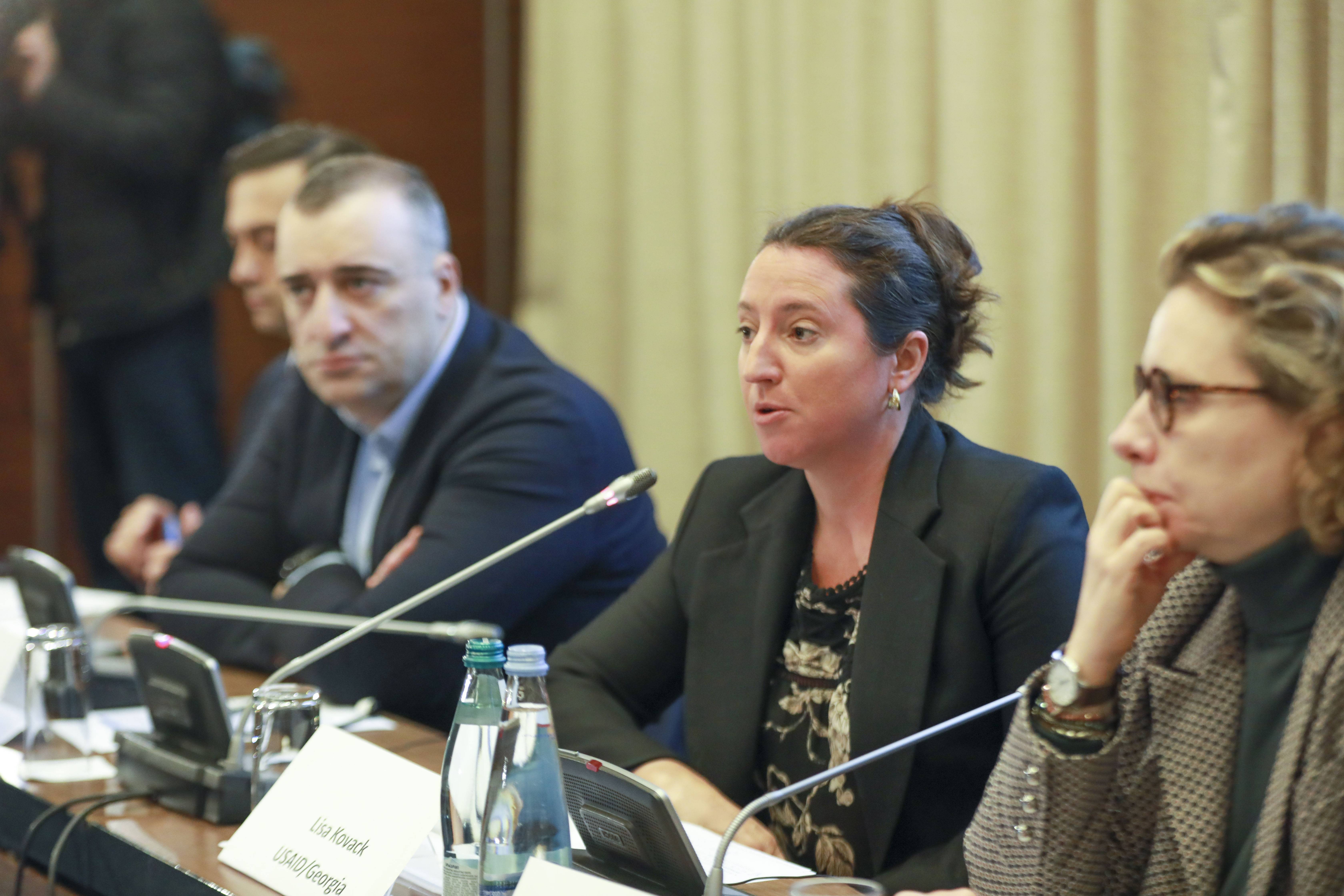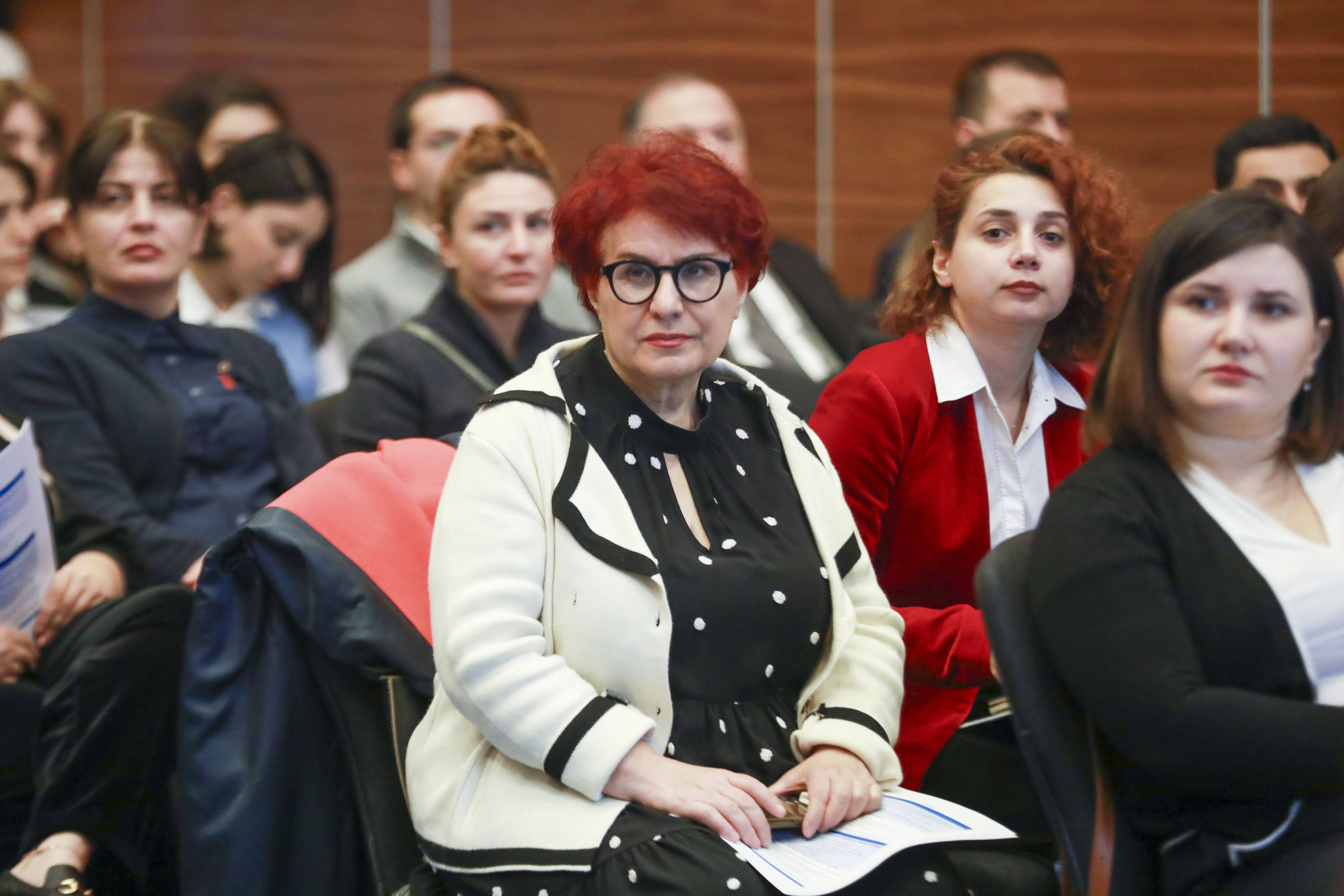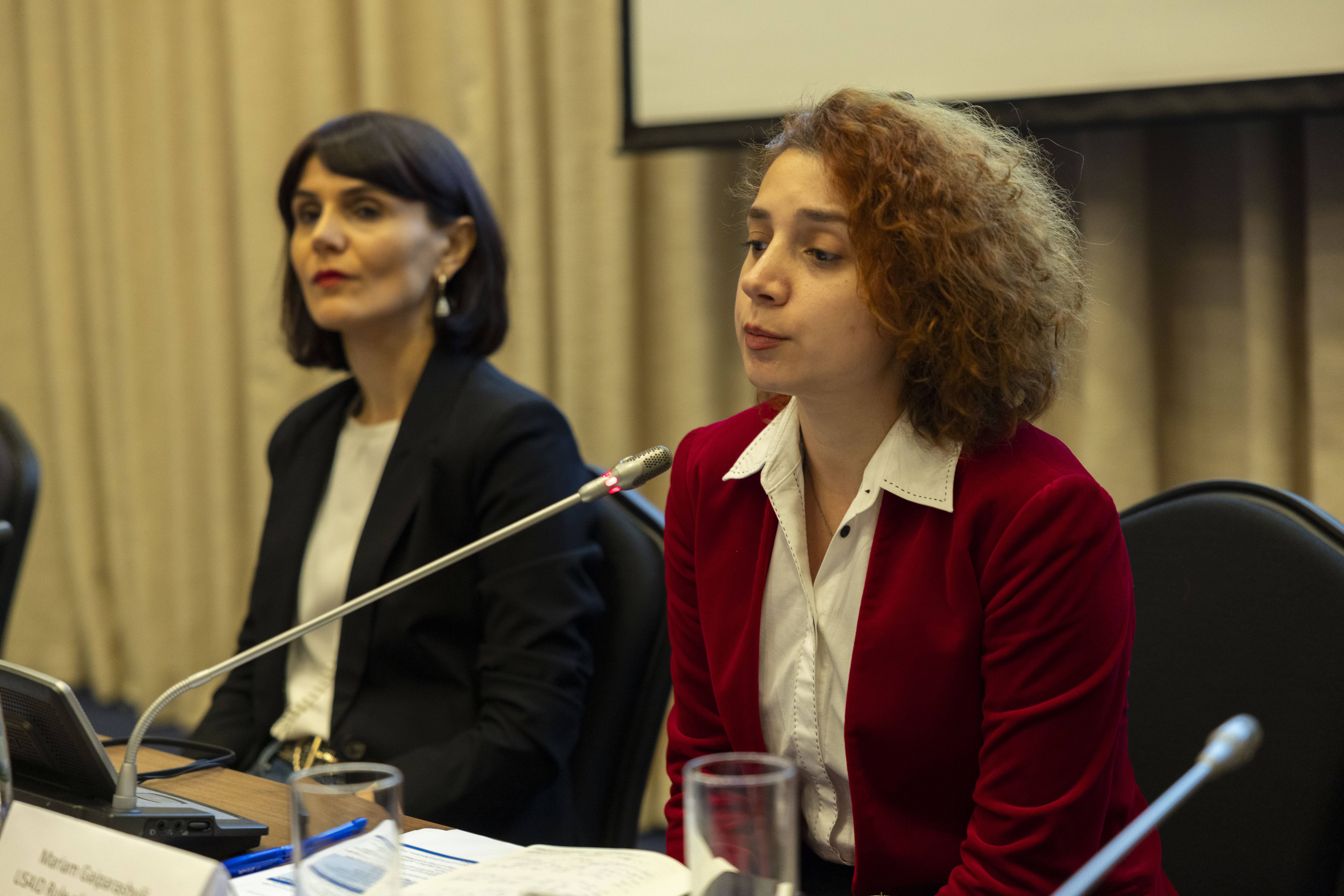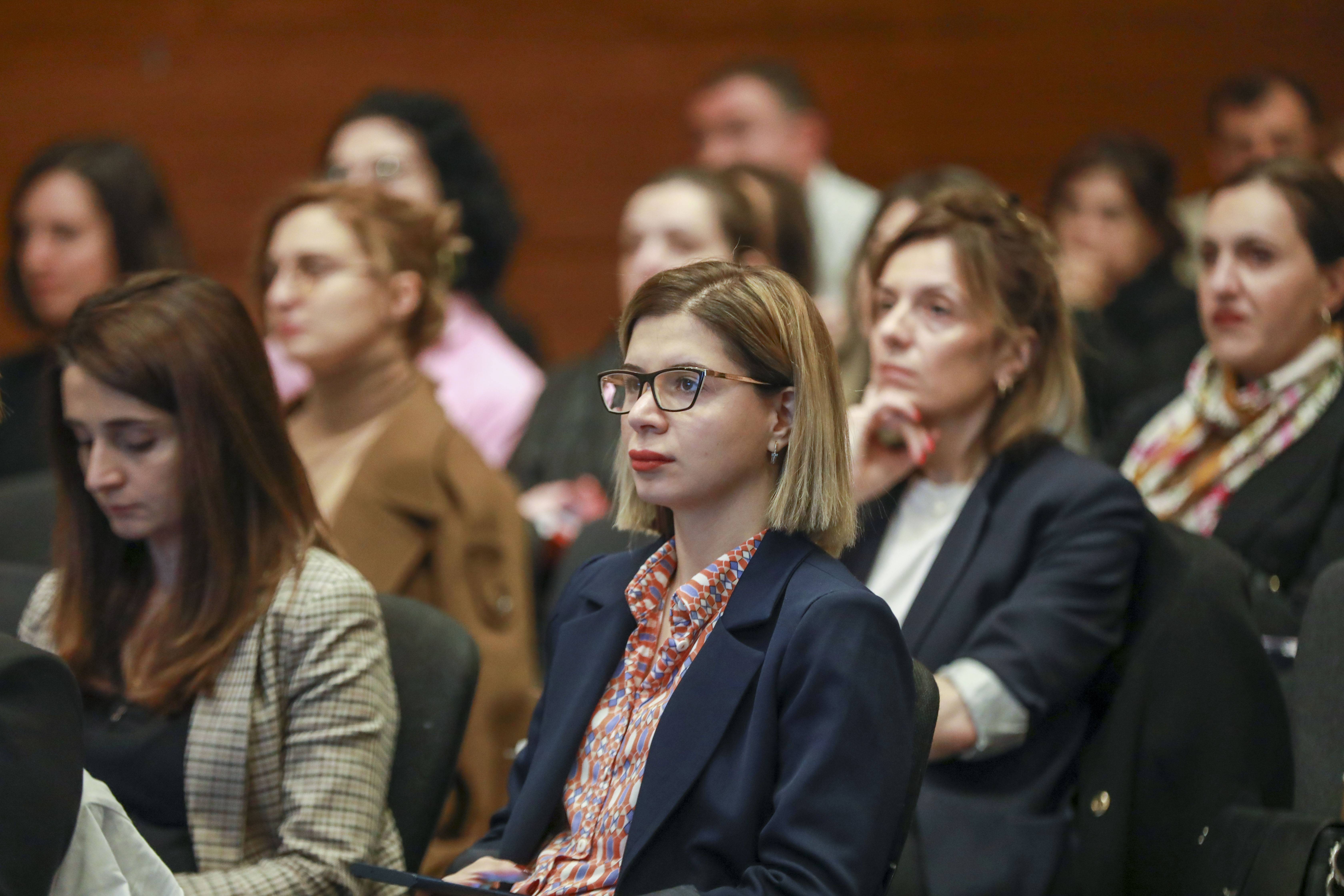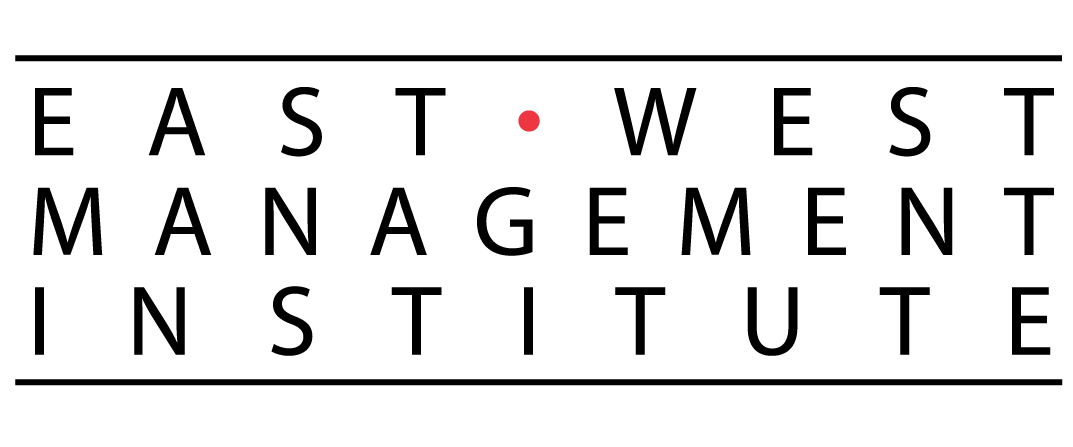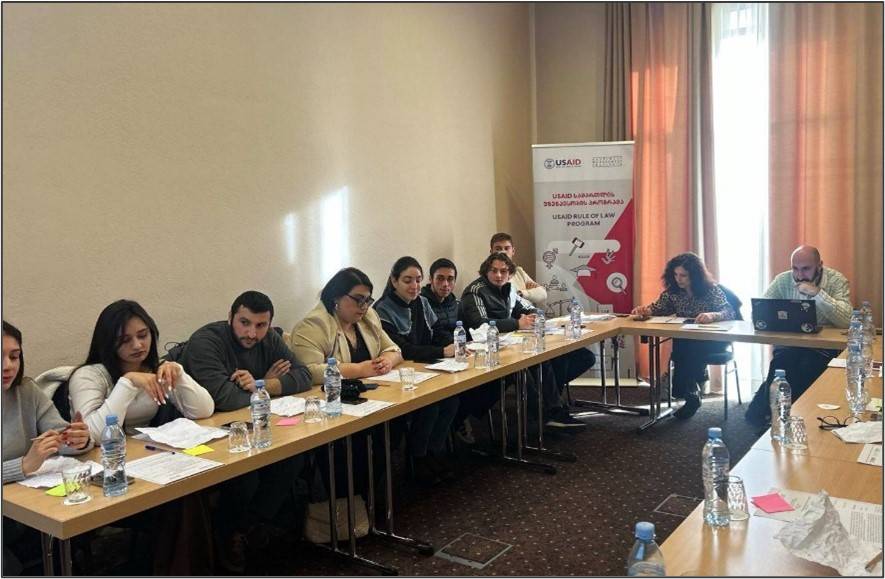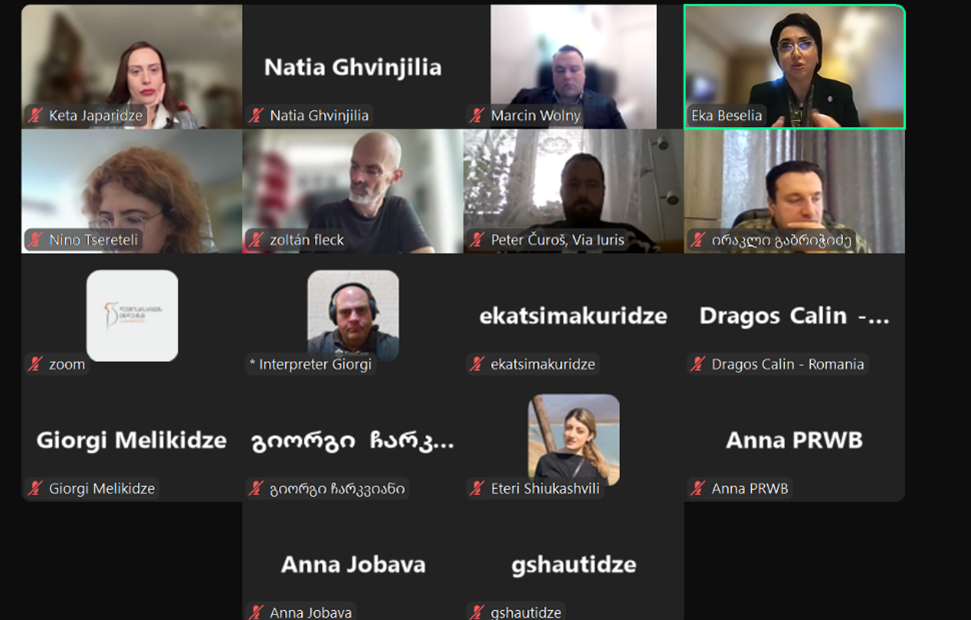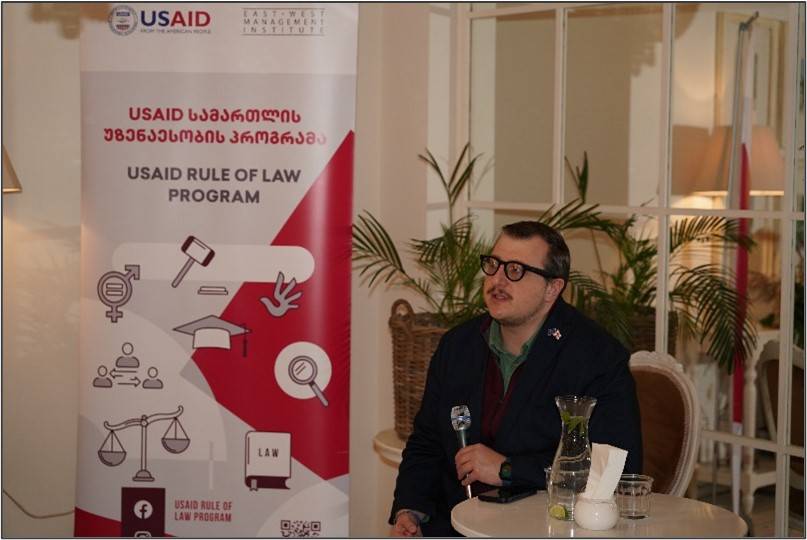National Dialogue on Sexual Harassment Prevention Mechanisms: A Reflection on Progress and a Call to Action
Sexual harassment is a global problem. Georgia’s passage of national anti-sexual harassment legislation and the subsequent establishment of prevention mechanisms in both the public and private sectors have created an opportunity for a reflection on where Georgia stands in terms of implementation.
Taking advantage of this opportunity, the USAID Rule of Law Program, along with UN Women and the Council of Europe Office (CoE) in Georgia, supported a conference on Implementation of Sexual Harassment Prevention Mechanisms, under the umbrella of the 16 Days of Activism Against Gender Based Violence/Global Campaign.
Held on November 29, 2023, over 100 representatives of legislative and executive government, civil society, educational institutions, international organizations, human rights activists, gender-equality advocates and media, met to discuss the current state of implementation of sexual harassment prevention mechanisms, achieved results and challenges.
In her remarks, Deputy Country Representative of UN Women in Georgia, Tamar Sabedashvili, emphasized the significance of institutional support for introducing and implementing prevention mechanisms to address sexual harassment in various settings.
Natalia Voutova, Head of the CoE, emphasized in her opening message that, “sexual harassment is not about sex; it is about the power dominance of men over women.”
Lisa Kovack, Acting Director of the Office of Democracy, Rights, and Governance at USAID/Georgia, reiterated the U.S. Government's commitment to collaborating with Georgian counterparts to advance gender equality, combat gender violence and sexual harassment. She mentioned how the USAID through the Rule of Law Program worked with Parliament and other stakeholders to adopt the 2019 legislative amendments prohibiting sexual harassment in the workplace and public spaces.
Member of the Parliament of Georgia, Rati Ionatamishvili emphasized the crucial role of raising public awareness regarding sexual harassment. He noted, "sexual harassment is often not perceived by society as violence or a criminal act. This perception contributes to the reluctance of individuals to speak out, fearing potential bullying and criticism."
Head of Human Rights Unit at the Government’s Administration, Maka Peradze and Public Defender of Georgia, Levan Ioseliani spoke about national mechanisms and strategies to fight discrimination. Levan Ioseliani recognized “there are cases when victims of discrimination refuse to use legal means of protecting their rights, on the one hand, due to the problems of gathering evidence and on the other hand, due to public pressure,” and further stated, “the spread of sexist expressions against women involved in public and political life is also a problem, which strengthens discriminatory attitudes and is often used as a tool of political struggle against women and to silence women.”
The sessions, facilitated by theme-related experts from various state and non-state organizations, offered an opportunity to share insights into best practices, benefits, and challenges associated with implementing sexual harassment prevention measures in both workplaces and higher education institutions.
The conference contributed to a national-level dialogue by fostering the exchange of knowledge on successful prevention strategies and is expected to enhance collaboration among stakeholders.
